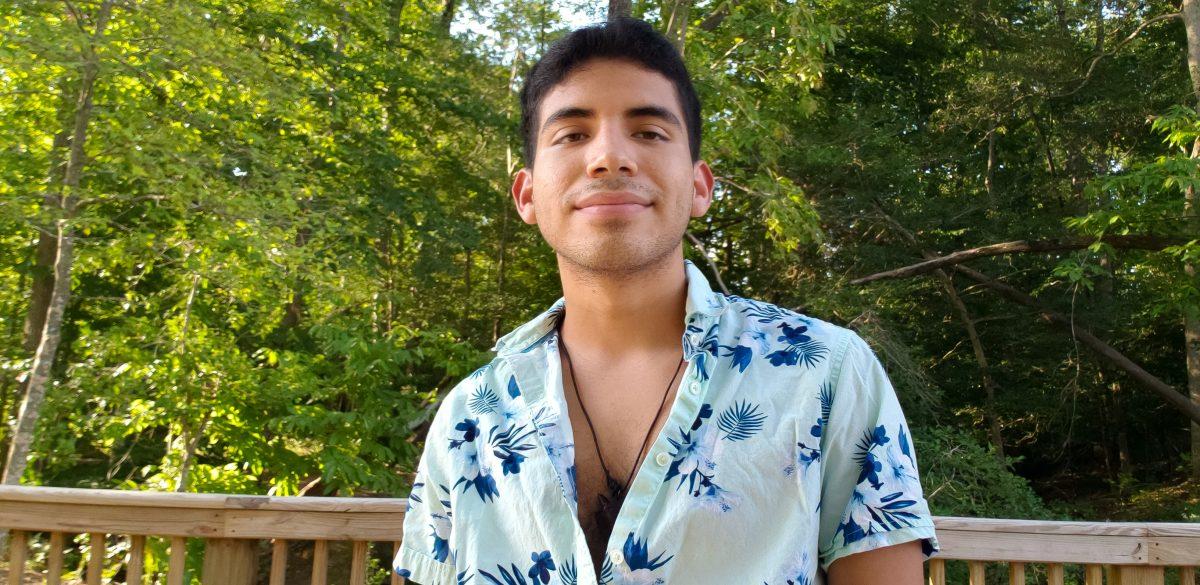
Caryl J. Espinoza Jaen, Opinion Editor
caryl j espinoza jaen headshot vol 101
The end of an era is coming. Starting this week, we’re back on campus for a full semester once again, marking the end of almost two years of tedious, virtual education. While part of me is excited at the prospect of not having to sit through another Zoom lecture, another part of me is excited for a specific reason: queer students, staff and faculty return on campus, marking the return of NC State’s queer scene on and around campus.
When everything went online, work stopped mattering even more, and our own newspaper published countless columns and op-eds alone describing this effect. Zoom classes were nauseating and all of us were burnt out, with no way to address it or even define it. Everything was, and still feels, meaningless. Pointless.
But the pandemic did not just highlight how much of our lives were dictated by pointless labor and joyless work. It also put a spotlight on how much we needed social outlets and circles, and suffice to say, going back home was an isolating experience for most, if not all, students, staff and faculty.
For many LGBTQ+ students at State, going back home was twice as lonely. In many ways, colleges serve as imperfect queer spaces for students, since an university’s LGBTQ+ population size towers over the handful of (openly out) high schoolers. For students admitted prior to the pandemic, going home meant saying goodbye to the queer circles you hung out with in real life — permanently, for some of the recent alumni. For students admitted during the pandemic, it meant never really getting the chance to enter a friend group, let alone a queer one, until (maybe) this semester. This semester, only fourth-years have been on campus for over a year.
For me, it meant going back home to see my parents, who I hadn’t been on friendly terms with for two years until fairly recently. And I wouldn’t be surprised if I have fellow students who have been through similar, if not worse, family scenarios. Queer students are at higher chance to face conflicts with their family due to their sexual or gender identity. Without immediate access to these queer spaces, going back home meant regressing back to our former lives, some more painful than others.
North Carolina is not the friendliest place for LGBTQ+ people — this is, after all, the state that infamously passed the bathroom bill by pushing anti-trans propaganda. NC State itself has a fair bit of anti-LGBTQ+ history, and you’d be surprised at how many straight people love to call us f—— and devil spawns behind closed doors. But I can’t deny that college was my gateway into embracing my sexuality either, as imperfect as it’s been.
LGBTQ+ students at State are also lucky to have various queer venues around the Triangle — bars and clubs like Ruby Deluxe and Legends are just right around the corner, and organizations like Equality NC and the LGBT Center of Raleigh provide countless events and rallies for LGBTQ+ folks around the area. NC State’s GLBT Center, located right on the center of campus itself, also provides the same function. To any newcoming queer students on campus who have not gone to these centers, pride parades or political rallies, I strongly recommend doing so. The feeling is quite liberating, especially after a year in near-lockdown.
And queer spaces on campus can be, for example, someone’s apartment parties, underground functions promoted on social media, or even ENG 267, a class on American LGBTQ+ literature taught right here at NC State. Like gender and sexuality itself, LGBTQ+ spaces are fluid and transcendent themselves. We define them ourselves, through constant interaction with fellow queer students, staff and faculty on campus.
Our return to the in-person queer scene is not guaranteed, though. With the delta variant causing a surge in COVID-19 cases, there’s an uncomfortable chance that we might be (once again) sent home. Aside from stressing that everyone should get the COVID-19 vaccine if possible, it highlights just how intangible our spaces can become in a matter of days. Making queer friends online is not the same as making queer friends through school, and frankly, I’d argue that virtual spaces encourage long-distance interactions between queer people.
But I’m still optimistic, since queer people have been astonishingly resourceful throughout history, even in pandemic dating itself. I’ve no doubt that even if we’re sent back online, queer students will find ways to party with each other, whether through Instagram groups, Twitter posses and the ever-infamous dating apps. Throw in a Netflix party, a webcam session, or a Discord call as well.
Suffice to say, queer students at NC State should be excited for the return to campus life starting Aug. 16. Mark this fall as not just the return to class, but the return to us having a plethora of LGBTQ+ peers right by our dorm rooms and apartment complexes.
In the meantime, I’m going to use all of my favorite spots around campus to talk about house music, Azealia Banks and art history. It’s pretty gay, but that’s the sexy part of it.